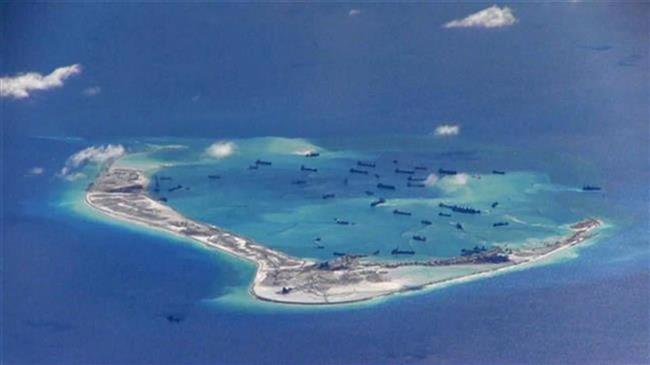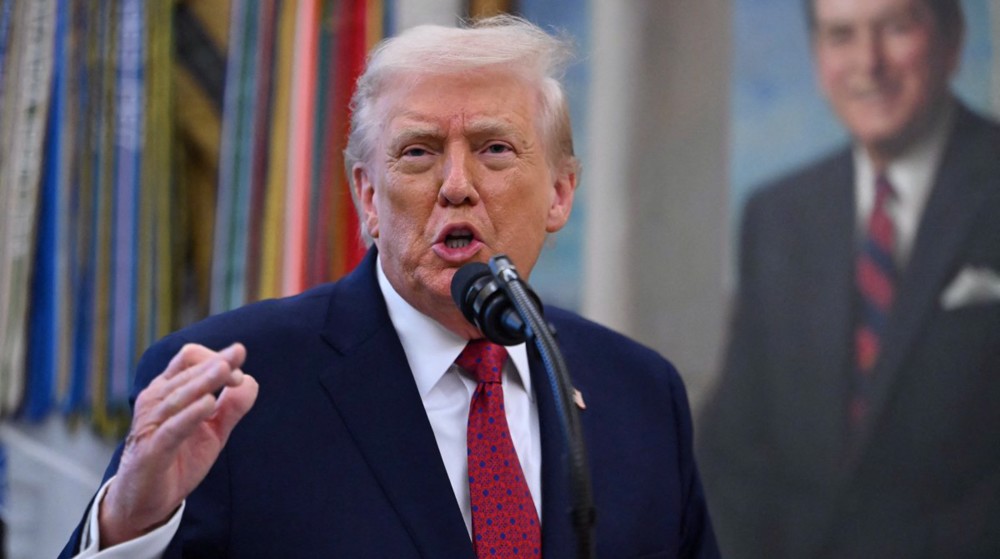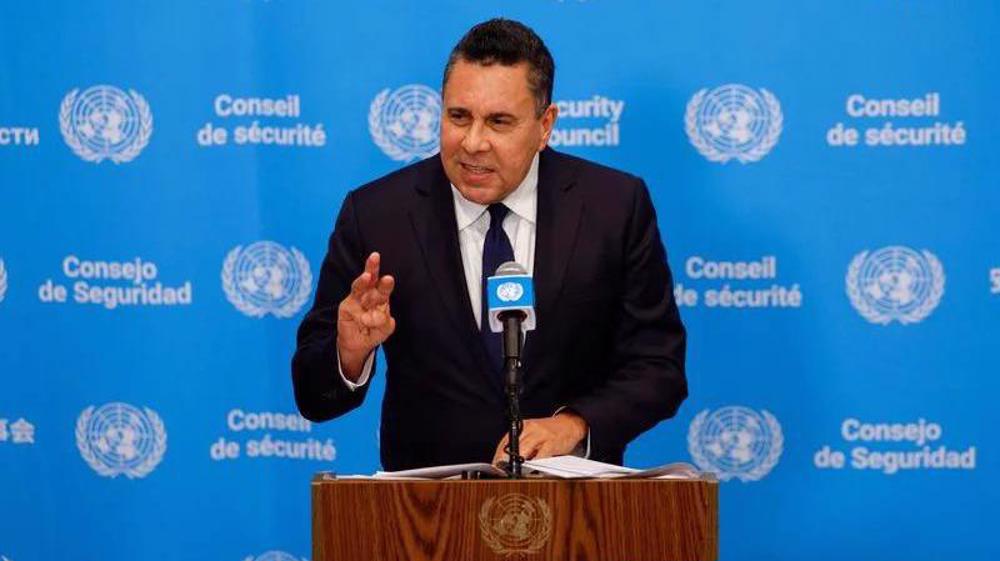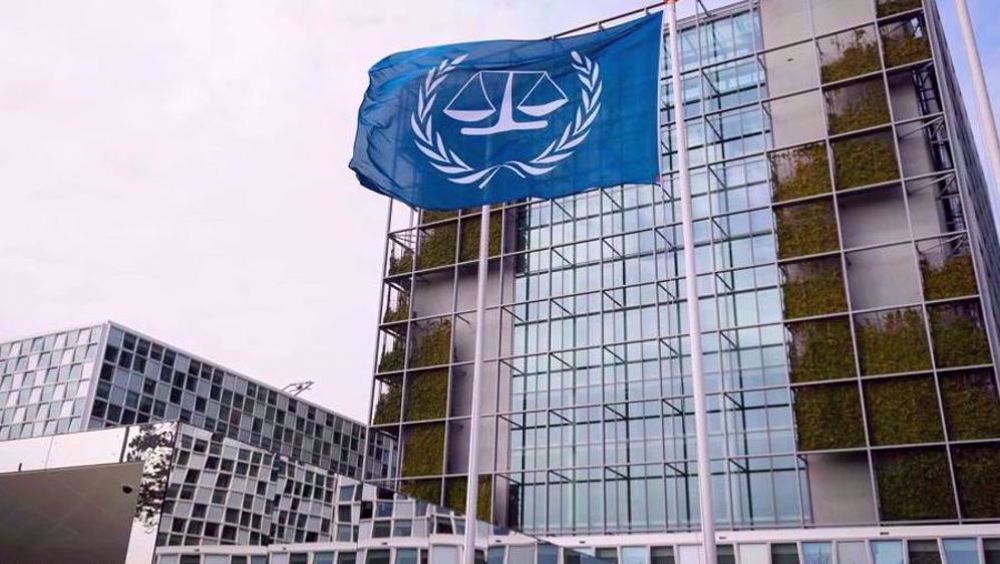US threatens China with sanctions over South China Sea claims
The United States has threatened to slap sanctions on China over accusations of Beijing’s exploitation of offshore resources in most of the South China Sea.
The top US diplomat for East Asia said on Tuesday that Washington could respond with sanctions against Chinese officials and enterprises involved in what he claimed as coercion in the South China Sea.
"Nothing is off the table... there is room for that. This is a language the Chinese understand — demonstrative and tangible action," David Stilwell, the assistant secretary of state for East Asia, told a Washington think tank when asked if sanctions were a possible US response to Chinese actions.
Stilwell’s threat came a day after the US dismissed China's claims to offshore resources in most of the South China Sea as "completely unlawful.”
Earlier in the day, Chinese Foreign Ministry spokesman Zhao Lijian had censured the US rejection of China's claim, calling on Washington to stop its actions of disrupting regional peace and stability in the South China Sea.
“The United States is the destroyer and troublemaker to regional peace and stability. The international community sees it very clearly," Zhao said at a regular briefing.
"It intentionally stirs up controversy over maritime sovereignty claims, destroys regional peace and stability and is an irresponsible act," he added.
"As a country outside the region, the United States, out of its selfish interests, would like to see nothing but instability in the South China Sea, does everything possible to stir up trouble there, alienate the relations between the countries in the region and China, and disrupt the efforts of China and ASEAN countries to maintain peace and stability in the South China Sea,” Zhao underlined, referring to the Association of Southeast Asian Nations.
Established in 1967, the ASEAN group is comprised of Brunei, Cambodia, Indonesia, Laos, Malaysia, Myanmar, the Philippines, Singapore, Thailand and Vietnam.
Some of the world's main water routes, where trillions of dollars worth of good are annually transited, pass through the South China Sea.
However, parts of the South China Sea, which are said to have untapped oil and gas reserves in them, are also claimed by China's neighboring countries, the Philippines, Brunei, Malaysia and Vietnam.
The United States, which sides with Beijing’s rival claimants in the maritime dispute, routinely sends warships and warplanes to the South China Sea to assert what it calls its “right” to “freedom of navigation,” ratcheting up tensions with China.
Beijing has constantly warned the US against its military activities in the sea, saying that potential close military encounters by the air and naval forces of the two countries in the region could easily trigger accidents.
US warnings over Xinjiang hurt global supply chain: China
In a separate development on Tuesday, the Chinese commerce ministry said Washington’s "warning" to US companies working in the western Xinjiang region had destabilized the global supply chain.
The US State Department told top American companies including Walmart Inc, Apple Inc and Amazon.com Inc this month that there were risks in maintaining supply chains associated with what it claimed as "rights abuses" in the western region.
China's commerce ministry also underlined that the US move had also affected the global economic recovery from the coronavirus pandemic.
The ministry said in its statement that China would take necessary measures to defend the legal rights of Chinese firms.
Muslim Uighurs, who makes up about 45 percent of the population in Xinjiang, have long accused the government in Beijing of cultural, religious, and economic discrimination.
China rejects the accusation and, in turn, accuses what it describes as exiled Uighur separatist groups of planning attacks in the resource-rich Xinjiang, which is strategically located on the borders of Central Asia.
Last year, a UN human rights panel cited estimates that two million Uighurs and Muslim minorities had been forced into “political camps for indoctrination” in the autonomous region, which is home to about 10 million Uighurs.
Beijing has denied that accusation as well as other reports that Uighurs are unfairly marginalized and says it is addressing underdevelopment and lack of jobs in heavily Uighur areas such as Xinjiang.
Use and throw: As US foreign policy priorities shift and Europe falters, Ukraine pays the price
VIDEO | Press TV's news headlines
VIDEO | UNRWA Spain sounds alarm on deepening Gaza crisis
VIDEO | UK police arrest protesters for chanting ‘globalize the intifada’
VIDEO | Yemenis rally in anger over Holy Qur'an desecration
VIDEO | Citizens question EU's €90 billion interest-free loan to Ukraine
US launches ‘retaliatory strikes on Daesh targets’ in Syria amid controversy over intervention
FM: Iran open to dialogue based on respect for nation’s rights, but opposes one-sided imposition













 This makes it easy to access the Press TV website
This makes it easy to access the Press TV website